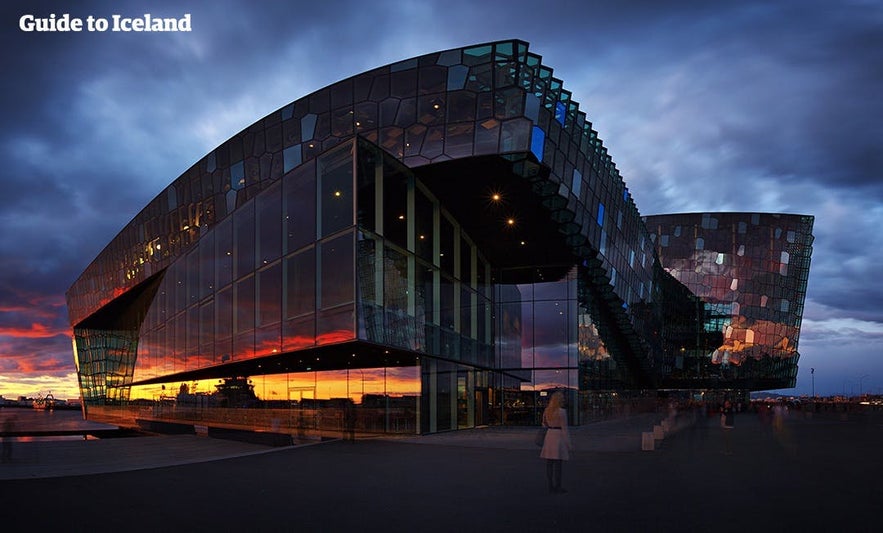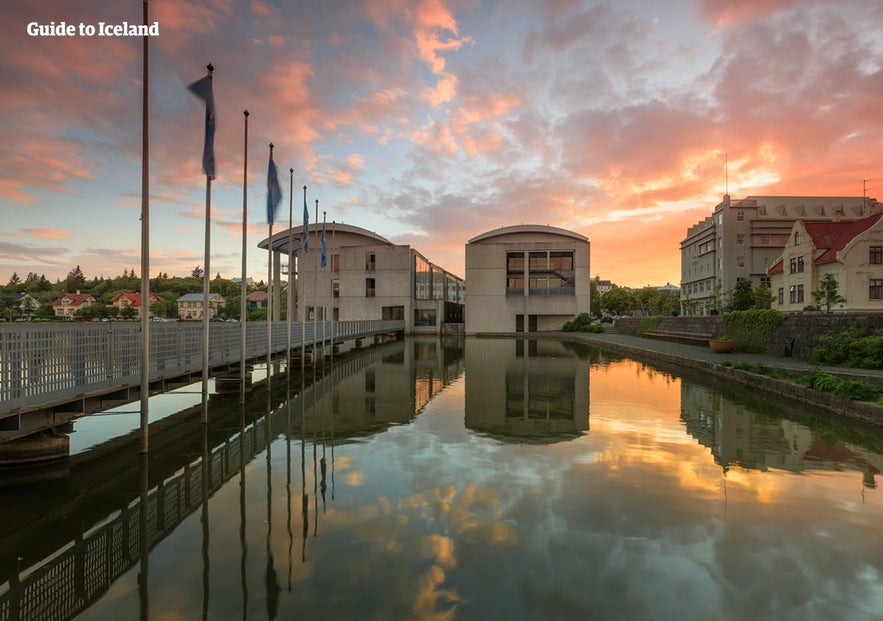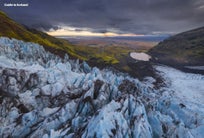
Iceland in a Wheelchair | Adventures Accessible to Everyone

- Travel in a Wheelchair
- Access for All: A Brief History of Accessible Iceland
- Yes, There Is an App for That
- Navigating Downtown Reykjavik in a Wheelchair
- Out to Sea: Accessible Whale Watching
- Venturing Out of Reykjavik
- Flightseeing!
- Paragliding: A New Extreme Sport or the Best Accessible Activity in Iceland?
- Wheelchair Accessible Campsites in Iceland
- Airport Transfer
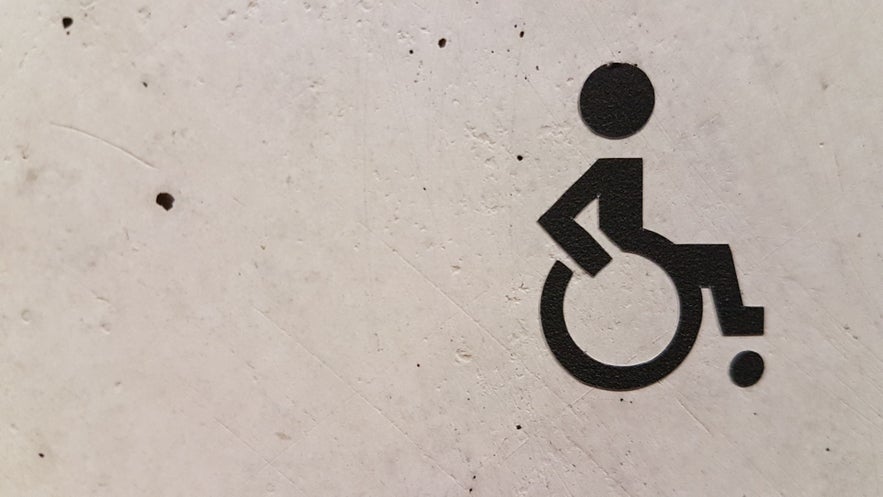
Iceland has more options and resources for travellers in a wheelchair than ever before – and not just within the city of Reykjavík. Not only are there a number of accessible tours of Iceland on offer, but local regulations and initiatives that improve options for disabled persons, as well as innovations in equipment, have made mobility in Iceland easier than ever. Read this comprehensive guide on visiting Iceland in a wheelchair to find out about the resources and options available.
Photo by Kristine Wook
- Check out this article all about Travelling to Iceland by Cruise
- Here is your guide to Avoiding the Crowds in Iceland
- Read 10 Questions About Icelandic Names Answered
Travel in a Wheelchair
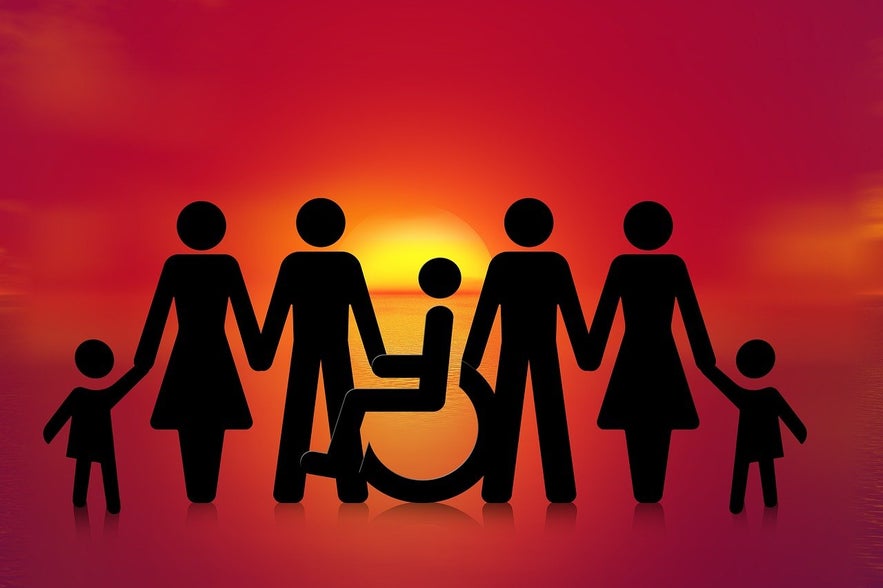 Photo from geralt
Photo from geralt
Travel in a wheelchair can be daunting. It requires extensive advance planning, careful attention to every detail, and flexibility when things don’t go according to plan.
When speaking of international travel in general, that implies an understanding of city planning and infrastructure, phone call after phone call to ensure that arrangements are made to suit each individual’s needs, and, often, spending up to 20% more to hire out a tour company that specialises in universally accessible travel.
But the intricacies of planning simply aren’t—and shouldn’t be—powerful enough to quell the desire to travel.
Iceland’s remarkable landscapes—rugged though they may be—and its fascinating history have made it into a travel favourite over the past decade. However, those same captivating landscapes can seem completely unreachable: visiting Iceland in a wheelchair can feel more constricting than enabling.
But to smooth out the rough roads that lie ahead, we’ve compiled a mindful roadmap for wheelchair and mobility device users to consult as they plan their adventure in Iceland.
Access for All: A Brief History of Accessible Iceland
In 2012, Parliament passed an extensive document outlining building codes, stipulating that “in general, design should not preclude the use of mobility aids and equipment for disabled persons.” But the law only applies to buildings constructed after 2012 and does not take into account the need for retroactive renovations—nor does it clearly document the consequences of non-compliance.
In addition to new building ordinances, many of Reykjavík’s organizations have been working to construct a culture of accessibility. Sjálfsbjörg (The National Association of People with Disabilities in Iceland) has the stated goal of “working to create the disabled enjoy full participation and equality” and regularly conducts surveys on museums, pools, and other public places, making recommendations for country-wide improvements.
In 2012, the association established a knowledge centre, named “Þekkingarmiðstöð Sjálfsbjargar,” which is partly available in English. Their website is a rich resource for accessible venues of all types throughout Reykjavík. Here, for example, is a list of restaurants with disabled access, but the information is in Icelandic and you'll need to use Google Translate if you don't speak Icelandic.
Further underscoring the need for active advocacy, the city of Reykjavík, through the Iceland Human Rights Centre, incentivises the improvement of conditions through its yearly award (the Access Award of the City of Reykjavík), which is given to organisations who have contributed to the accessibility of public places.
Along similar lines, Aðgengi fyrir alla!, or Access for All! is a handbook drafted in cooperation with numerous architects, city planners, politicians, tourist organisations, and advocacy organisations in Iceland. The document is meant to provide exceptional guidance for meeting the needs of everyone in Iceland.
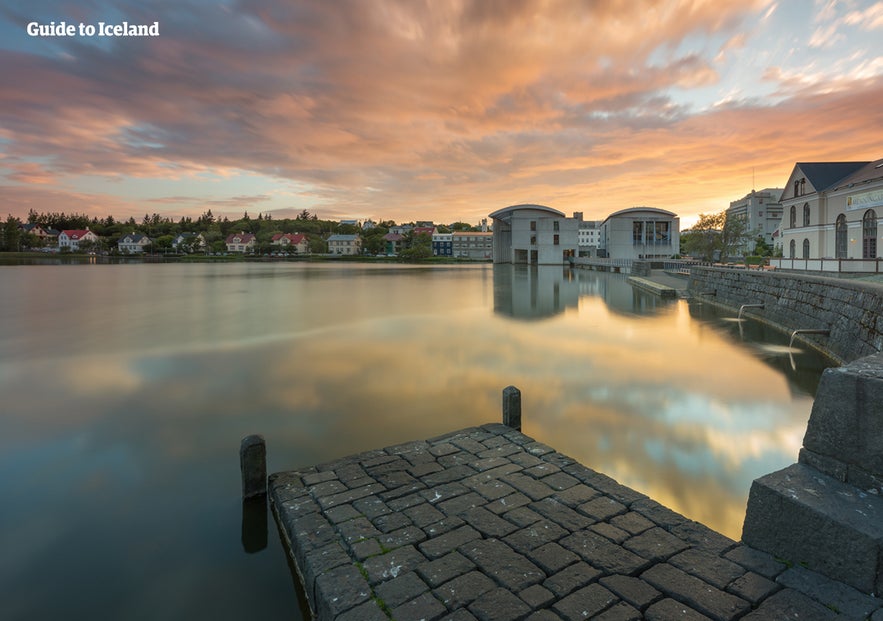
Despite the excellent strides that advocacy organisations have made, many of Reykjavík’s buildings still don’t take into account the measures recommended, and even required, by the city. Iceland itself does not rank well among Scandinavian countries that it’s generally on par with in terms of quality of life and happiness.
Take, for example, the public transportation system in Reykjavik, Strætó. Its buses are accessible to wheelchairs, but users have to be able to enter and exit the bus independently. Buses outside of Reykjavik do not have lifts or ramps.
That said, many of Reykjavík’s downtown sites are, in fact, wheelchair accessible, and there are a number of resources to turn to during your visit.
- See Also: Gender Equality in Iceland
Yes, There Is an App for That
Earlier this year, Icelandic occupational therapist Ósk Sigurðardóttir and software engineer Hannes Pétursson paired up to create TravAble, a free, interactive app that will help you to navigate the physical place of Reykjavík with greater freedom.
The app, which displays info in both map and list format, collates information about accessible services and entertainment venues based on user reporting, with specific details about the type of accessibility (e.g., handicap restrooms and ramps, as well as information about turning space). Once you’ve visited a site (in Reykjavík or elsewhere), you should leave a review, contributing to the overall base of available knowledge. TravAble is available in English on Google Play and in the App Store.
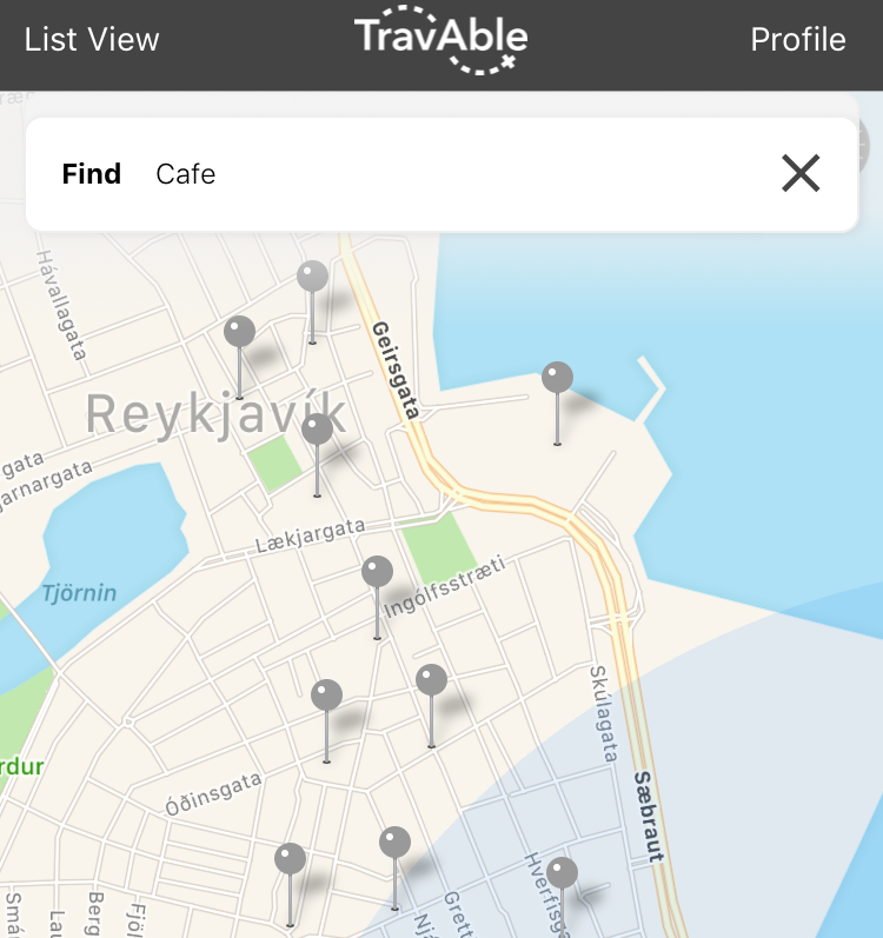
Further, Wheel Map is a similar resource that relies on user input to rank the accessibility of public places. This app is only budding in Reykjavík—so as you wander through the city, make a point of marking the map of accessible venues to help others traveling to those destinations in the future.
Last, but not least, God Adgang is a searchable database of all manner of accessible places in Iceland. God Adgang is very clear in its criteria, stating that “service providers who have been granted an Accessibility Label meet the minimum accessibility requirements applying to one or more of the seven categories .” Once you complete your search, click on individual offerings to read the organization’s recommendations for utilizing the space.
- See Also: Top 10 Apps for Travelling in Iceland
Navigating Downtown Reykjavik in a Wheelchair
That in mind, most of Reykjavík city is reasonably accessible. The sidewalks are generally well-equipped with curb cuts (curb ramps), making moving throughout Reykjavík significantly easier with a wheelchair or other mobility aid.
Even though the downtown area is hilly, streets in the city centre are heated (using the same pipes that heat Reykjavík’s houses and businesses!), meaning that you won’t encounter snow or ice-covered sidewalks downtown in late autumn and winter.
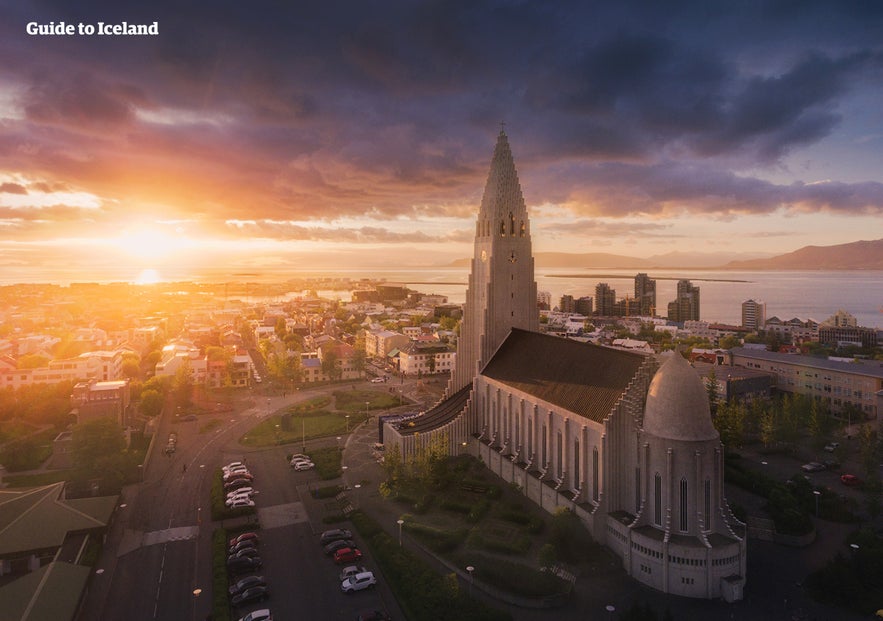
The city’s major shopping street and commerce centre, Laugavegur, and its adjacent and equally-fashionable twin Hverfisgata are both built on an incline, making solo-travelling in a manual wheelchair more difficult.
You’ll encounter several other streets that may require a push from a second party, or an electric wheelchair or scooter. Skólavörðustígur, which leads to architect Guðjón Samúelsson’s famed Hallgrímskirkja, is a short, picturesque street that runs uphill from the western edge of Laugavegur; on it, you’ll find a charming little cheese shop and restaurant, among other gems. At the top, you’ll not only find Hallgrímskirkja, but also a traditional Icelandic eatery and Einar Jónsson’s sculpture garden and museum—both of which are accessible, the latter featuring paved paths.
Reykjavík’s seaside, which runs along Sæbraut, has an excellent path with a beautiful view over Faxaflói bay, and Esjan presides over the coast in an almost royal attitude. The path presents a wonderful opportunity to travel to Harpa, an innovatively-designed concert hall with 30-minute accessible tours in English available daily. If contacted in advance, the staff at Harpa can provide wheelchairs and other assistance.
As you wander along the path, you’ll encounter the astonishingly beautiful Sun Voyager, a sculpture conceived by the lauded Jón Gunnar Árnason, whose stated intention for the sculpture is to encapsulate the dream of undiscovered territory – and all the hopes, freedoms, and progress thereof.
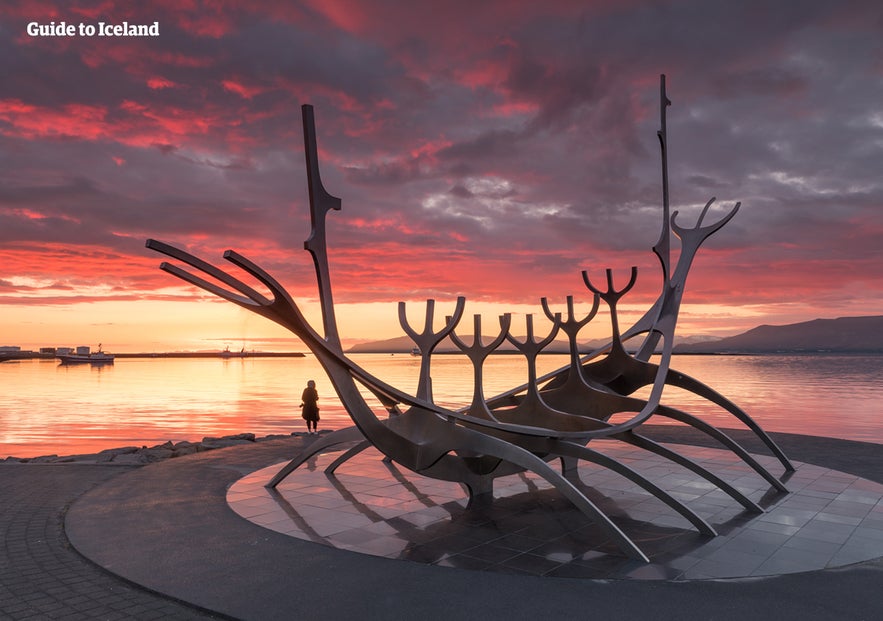
In the winter and autumn, it’s important to be aware of extremely high winds along the coast, as well as ice build-up on the path (which is not heated). As with all travel to Iceland, Veður.is is an indispensable resource for monitoring changes in weather, allowing you to plan adequately before venturing out.
- See also: Sightseeing in Reykjavik
Out to Sea: Accessible Whale Watching
The path from Harpa to Reykjavík harbour is narrow and winding, but the effort is worth it. Once you make it to this diamond in the rough, there’s no reason not to hop onto a whale watching boat. The main obstacles to whale watching in Iceland are the sheer age of some of the ships, many of which were built in the 1980s. But the accommodating and helpful staff at our trusted tour operators will make it easier for you to board a traditional whale watching tour.
In summer, you can watch the Midnight Sun set on Reykjavik city. On both of these tours, because of the steep stairs that lead into the ship’s cabin, wheelchair users will not have access to the restroom or the interior of the ship. However, the crew offers visitors warm blankets and hot drinks to make the trip more pleasant – ensuring that you see the spectacular midnight sun, surrounded by diving whales.
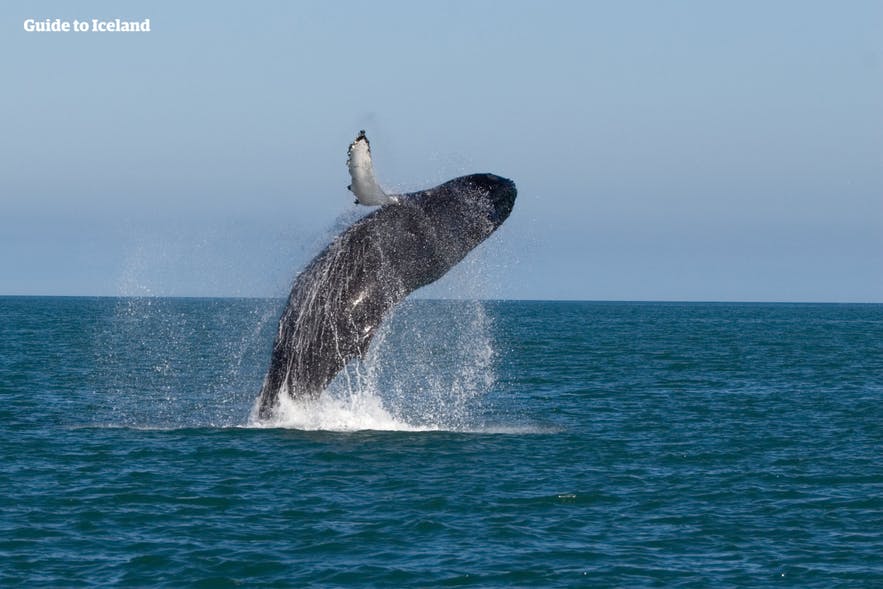
In winter, you may consider taking the same fleet, which offers Northern Lights tours at sea, trips to Yoko Ono’s Imagine Peace Tower on the nearby island Viðey, and a festive New Year's celebration.
Venturing Out of Reykjavik

But heading out of Reykjavík might be the crème de la crème of your trip. And never fear: many of the companies that we work with are flexible – but as a rule of thumb, they’re only able to accommodate foldable, manual wheelchairs.
It’s best to reach out to Guide to Iceland in advance of your booking in order to work out the best options for you in terms of tours and access. If you’re travelling with an electric wheelchair or scooter, an excellent option may be to rent a manual wheelchair from Stóð if your tour operator can’t accommodate powered mobility aids.
That said, Geysir, Gullfoss, Þingvellir, and Skógar, of the Golden Circle, are the most accessible main attractions in the south of Iceland. All four have a reasonable level of accessibility. In Þingvellir, the paths are not paved, but rather in-laid with wooden decking, almost like a thin boulevard built above the lava fields, making much of the park accessible. The geothermal area in Gunnuhver in Reykjanes has similar paths.
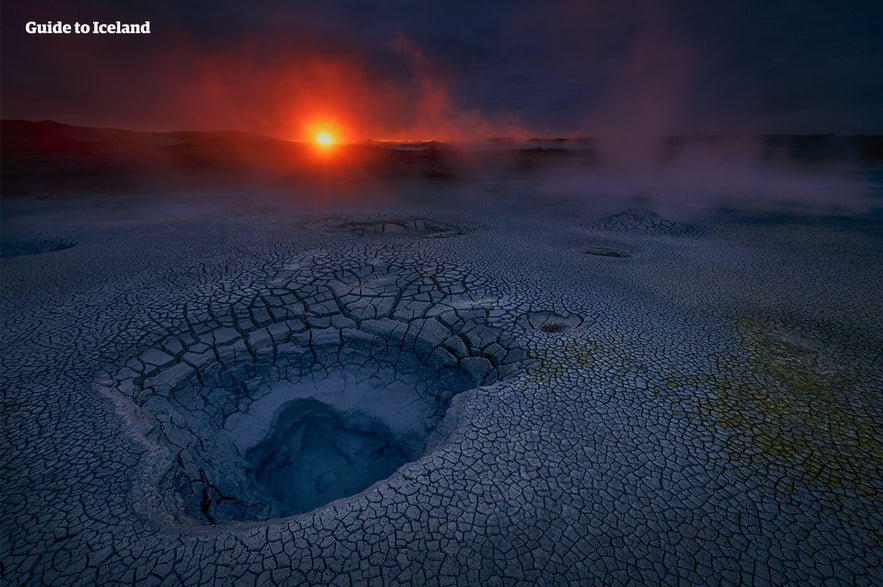
The greatest obstacle to good access at Þingvellir is the parking lot, which is awkwardly structured, making entry to the visitor’s centre more difficult because of a discontinuance in the pavement. Þingvellir has outlined a 2004-2024 plan for improving and preserving the area, which includes specific guidelines for wheelchair access, and they’ve followed many, but not yet all, of those recommendations.
Both Geysir and Gullfoss have paved paths from the parking lots to the attractions, the latter featuring an accessible viewing deck, and the former, a cosy restaurant.
If you’re interested in a bit of relaxation after your Golden Circle tour, a visit to Laugarvatn Fontana’s Geothermal Baths may be the way to go. After consulting with our contacts at Fontana, we confirmed that their staff will be able to make accommodations for travellers in wheelchairs. Although they don’t have services that are of the same calibre as the fully-accessible Blue Lagoon, site staff at Fontana will be able to assist disabled customers at this much less crowded geothermal spa in the wilds of Iceland.
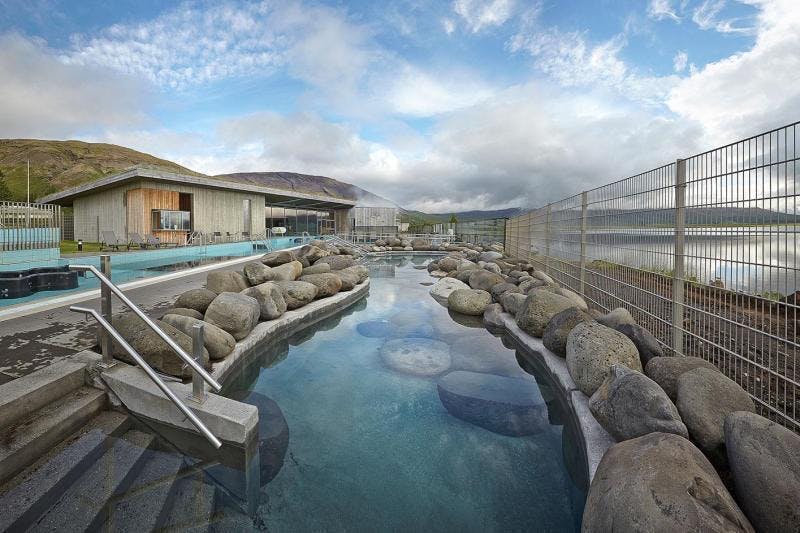
If you are seeking a fully-customised accessible tour in Iceland, Iceland Unlimited offers specialised tour packages with experts in the field. Iceland Unlimited also advocates actively for the rights of people with disabilities in Iceland.
Flightseeing!
Paved, demarcated, and well-maintained areas with handrails are essential to environmental protection because they help to stem the flow of foot traffic on Iceland’s ground; they are also, just as importantly, entitlements of disabled visitors to Iceland’s natural wonders. Infrastructure is one key element of accessibility and environmental preservation.
Flight is another.
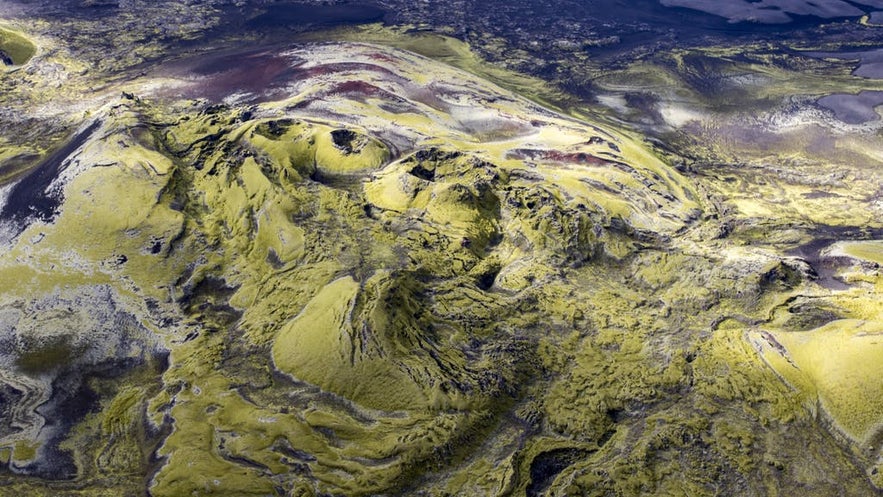
Image from: Sightseeing Flight over Laki Craters, Glaciers and Highlands
Featured helicopter tours lay flight at your feet. You’ll have assistance from tour operators when boarding the aircraft, and they’ll be able to stow your wheelchair or mobility device. To ensure the smoothest service, please contact Guide to Iceland in advance about special needs.
There’s no reason to miss out on all of the beauty Iceland has to offer. It is my sincere belief that Iceland is a country where all things are possible – sometimes, it just takes a helping hand. Many hands make light work, right?
Paragliding: A New Extreme Sport or the Best Accessible Activity in Iceland?
Case in point: Brandur Bjarnason Karlsson. In his twenties, Brandur became paralysed – prior to that, he had been active in sports, including judo and basketball, and was a devout hiker.
One year, Brandur took a trip to Peru, after which he suddenly began to lose the use of his limbs. Within a few years, he became fully paralysed from the neck down. The cause of his sudden loss of mobility isn’t entirely clear.
Brandur, however, took this seemingly insurmountable obstacle in stride. He learned to paint using only his mouth. And he found a way to fulfil his dream of taking flight in Iceland’s expansive skies. With the help of Gísli Steinar Jóhannesson, a hang gliding expert, Brandur was able to fly in a specially-designed tandem vehicle that was engineered by a team of aerospace experts over an 18-month period.
And paragliding, though it is for the brave of heart, isn’t closed off to travellers with disabilities. Once again, although it’s important to be in touch with us before completing your paragliding booking, the Flying Buggy and Glider Tandem Flight were particular recommendations by our operators for customers in a wheelchair.
However, it will be necessary for customers to have someone with them to help them in and out of the aircraft, and our operators recommend these tours to those who are self-driving. Guide to Iceland is happy to provide information on rental car services that can provide hand-controls and adaptive driving devices in their vehicles, and to work with you to the greatest extent possible if you are planning a self-driving tour.
Wheelchair Accessible Campsites in Iceland
Finally, you may be a camping expert. Or you may just be an enthusiast. Or you may never have tried it before and want to give it a go. Whichever it is, Camping Card provides access information about camping facilities across Iceland, including e-mail and contact information to confirm the comfort level, accessibility, and nature of the facilities available.
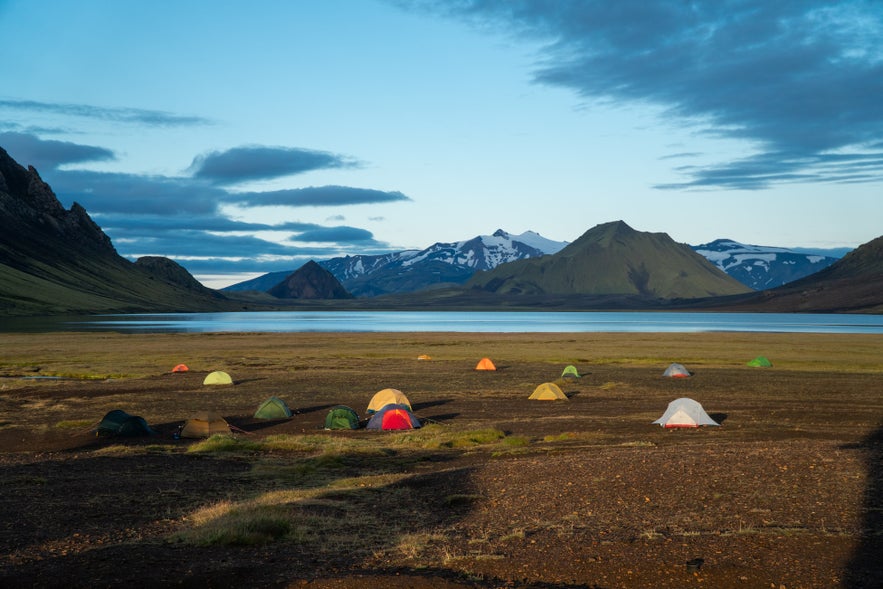 Photo by Pavel Brodsky
Photo by Pavel Brodsky
Airport Transfer
Last, but not least, when travelling to and from the airport, the Flybus is able to accommodate airport transfer to Reykjavík in several ways: if you have a manual foldable wheelchair and have someone to assist you, you can take a regular Flybus.
If you have an electric wheelchair or scooter, they offer a Wheelchair Taxi to and from your accommodation if you pre-purchase Flybus+ round trip tickets. They will need to be made aware of any special circumstances at least 24 hours in advance. Guide to Iceland can assist with Flybus arrangements for tours in which tickets are included.
- See also: Ultimate Guide to Flights to Iceland
If you have questions or concerns about any of the tours or sites listed in this article, please feel free to contact Guide to Iceland. We’re always here to help.
더 많은 흥미로운 게시글
아이슬란드 여행 경비를 절약하는 19가지 팁
다른 나라와 비교했을 때 아이슬란드의 물가가 아주 저렴한 편은 아니지만, 여행의 질을 낮추지 않으면서 경비는 줄일 수 있는 다양한 방법이 있습니다. 저렴한 비용으로 즐겁게 아이슬란드 여행을 다녀올 수 있는 꿀 팁과 비결, 지금부터 소개해 드리겠습니다! 아이슬란드에 가본 사람에게 아이슬란드가 어떤 곳인지 물어보면 대부분 자연이 아름답고 물가가 비싸...더 보기
아이슬란드에서 운전하기 완전 정복!
아이슬란드에서 운전하기에 관한 궁극의 가이드입니다! 아이슬란드에서는 왜 여름에는 운전하기 쉽고 겨울에는 운전하기가 어려울까요? 렌트카 여행 패키지를 위한 차량 렌트 방법과 필수 요건에 대해서도 알아보세요. 아이슬란드에서는 어느 쪽 도로에서 운전하는지, 도로 상황은 어떤지, 주차장은 어떻게 찾는지, 운전 규칙에는 어떤 것들이 있는지 등을 이 글에서 자세히 알...더 보기아이슬란드로 오고, 떠나는 교통편!
아이슬란드까지 어떻게 가야할지, 그리고 아이슬란드와 그 주변 섬들을 어떻게 여행해야 할 지 알아보겠습니다. 비행기 타고 가기 북대서양에 위치한 섬나라인 아이슬란드는 오직 배와 비행기로만 접근 가능합니다. 4개의 항공사가 아이슬란드에 취항하고 있는데 다음과 같습니다. 와우에어 : 북미와 유럽의 몇몇 도시에서 출발 이지젯 : 영국에서 출발...더 보기

아이슬란드 최대의 여행 마켓플레이스를 전화에 다운로드하여 전체 여행을 한 곳에서 관리하세요
전화 카메라로 이 QR 코드를 스캔하고 표시되는 링크를 누르면 아이슬란드 최대의 여행 마켓플레이스를 주머니에 넣을 수 있답니다. 다운로드 링크가 포함된 SMS 또는 이메일을 받으려면 전화번호 또는 이메일 주소를 추가하세요.
